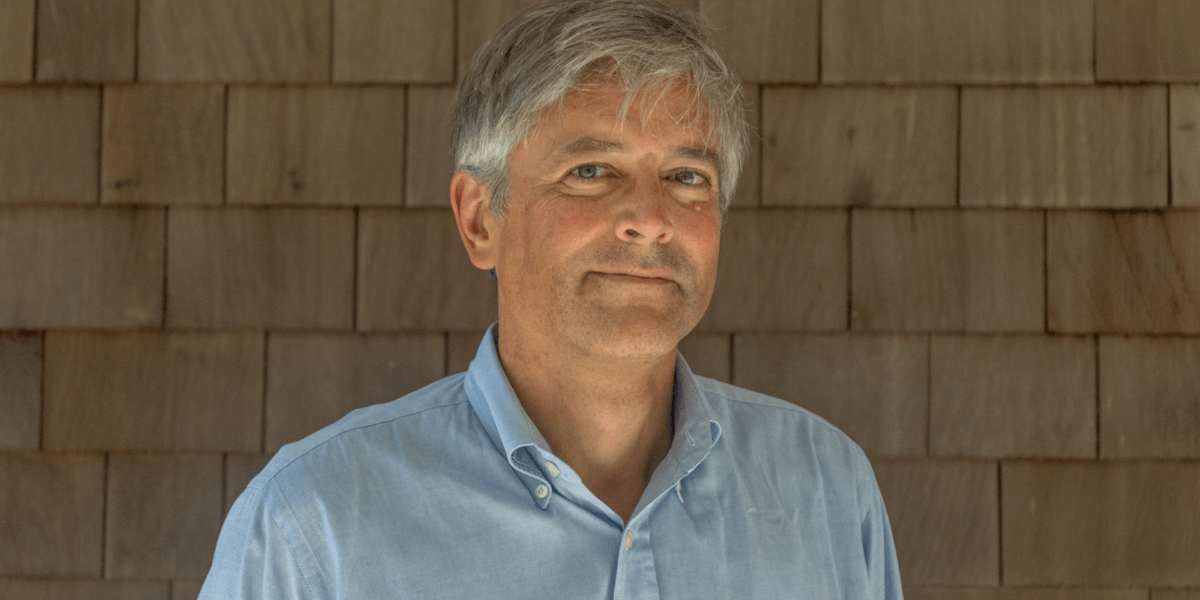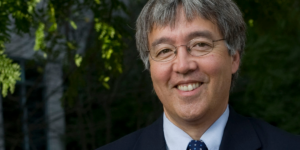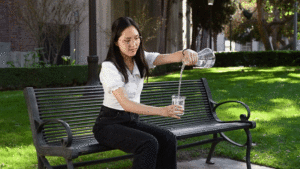
Chris Ramming
Chris Ramming, Senior Director for Research and Innovation at VMWare, will be a speaker at the Symposium on the Future of Computing Research held by USC’s Information Sciences Institute on September 12-13, 2022.
What topics should we be researching to reflect the changing role of computers in our society?
The last few years have shown how impactful computer science research can be on society, but the related innovations may result in dangers, risks and ethical considerations. I think the community is beginning to realize that those issues may need more attention. There may be ways to incorporate some of these broader considerations into our research agendas.
One of the issues that I’m particularly interested in right now is privacy. Data is available on the internet in forms that can’t be controlled by the people who originated it. I’m personally interested in technologies that give us not just the ability to keep secrets – which is the way I think about security – but also give people control over who sees those secrets – which is how I think about privacy engineering.
How do you think we should stimulate research in these areas?
Partnerships matter a lot. And partnerships between industry, academia and government can be very effective. People can do a lot more together than they can by themselves.
One of the things that people can do when they’re tackling an important area like this, is to just put down a position paper outlining the range of issues that need to be addressed. Which agencies or which communities need to address them? What might a nation-scale research agenda look like to comprehensively tackle one of these societal issues?
Should researchers without traditional computer science backgrounds, such as those with social science degrees, get involved in computer science research? What is the best way for them to get involved?
As technologists, we may not have the tools to understand human needs, desires, societal issues. Bringing in social scientists, ethnography researchers and user-experience researchers earlier, during the problem formulation and design stage of a research program, could be very valuable.
One approach could be to create advisory boards or ethics boards. You can’t expect people to work on these problems full-time, and that may not even be necessary. There may be ways of having part-time roles, opening up opportunities to forge collaborations early in the life of a large program.
We also see a lot of places where computer science research can be beneficial in other disciplines such as biology, physics and energy. Collaboration across those kinds of fields can potentially be very valuable as we bring, for example, state of the art AI techniques to new problems in fusion energy. That’s a form of collaboration that is becoming increasingly commonplace, because computer science is so fundamental to many different industries today.
In the past, you’ve talked about how to foster a positive relationship between corporate and faculty researchers. How can we encourage this kind of research?
The key is to find people who are interested in tackling the same big goal and who value each other’s insights and experience, and believe that by working together, they can accomplish more. The best thing we can do is create opportunities to connect like-minded researchers.
What is the best way for companies and universities to plan an innovative portfolio of research?
At VMWare, we try to grow our company and enrich our portfolio of products and services in a number of different ways. There are times when we acquire companies, which is referred to as inorganic innovation. There are times when we build our own internal technology, which is organic innovation. We deliberately try to do both.
Academia, increasingly, is finding multiple ways to do research translation. In some cases, people are creating their own faculty-led startups. In other cases, they are letting companies take their inventions to the next level and innovate with them.
We have choices on the corporate side about how to balance organic and inorganic innovation. Researchers at universities have choices about how they would like to see their inventions, commercialized or brought into the real world. Understanding each other’s point of view is a critical first step in building a successful collaboration. All of those approaches work and make for a productive relationship. But it’s important to figure out early on which path you’re planning to go down.
What is one outdated practice that you see a lot in your field that you believe is limiting innovation and that researchers should move past?
I often hear of people get hung up on intellectual property negotiations before they begin a university-industry collaboration. I think being too concerned about fully triaging intellectual property issues at the beginning of a relationship can slow down the launch of that relationship in ways that may not be necessary. I’m encouraged that some leading research groups are proactively adopting a “public dedication” approach based on permissive open source licenses and patent avoidance. I’ve also been encouraged to learn that the public dedication philosophy doesn’t seem to be in conflict with the requirements of faculty and student startups – there are even a few instances of “unicorns” (startups with billion dollar valuations) coming out of academic centers with a public dedication philosophy. Perhaps this relatively relaxed approach is possible because our industry competes more on implementation than on intellectual property.
Who is someone in your field that is doing exciting, forward-thinking research?
One example is Scott Shenker’s [Professor of Computer Science at UC Berkeley] Extensible Internet Project. I’m a sucker for “reinventing the internet” projects. The Extensible Internet idea turns some conventional wisdoms upside down and recognizes certain practical realities about the nature of internetworking. It’s doing it in a way that may address the roadblocks of putting a reinvented internet into practice. I’m particularly excited about that kind of thing, where we know that there are some improvements to be made and we’re doing it in a way that’s a little unconventional, so that it might become something that can be introduced in the real world.
A second example is another UC Berkeley effort around sky computing. In computer science we always look at things through the lens of what the next level of abstraction can be, and what it will look like. The sky computing effort is interesting, because it explicitly recognizes a phenomenon that we call multi-cloud. It focuses around the idea of service brokers and abstraction layers that sit above the cloud—which is why it’s called sky computing.
What will computer science research look like in ten to twenty years?
I think what we’re going to see is a continuation of the current trend where computing becomes increasingly embedded in many different domains: medicine, biology, physics, astronomy. It has the potential to add tremendous capability and maybe even accelerate the development of new advances in certain fields. But, of course, accelerating research and doing it at a greater scale also has the increased potential for unintended consequences.
Who should regulate those potential consequences?
You may have heard about a ceremony Canadian engineers undertake at the beginning of their careers that involves an iron ring. The ring provides a reminder of a bridge collapse that was the result of some calculations that weren’t done correctly. The ring is worn in a way that rubs against papers when people are doing calculations, to remind them that they need to do those calculations carefully and consider the social consequences of their work.
What is the responsible code of social responsibility that computer scientists should be adhering to? Maybe we can develop that ourselves. The computing research community as a whole should be thinking about its own standards for social responsibility. It’s not the province of any one party, and does not need to come from government or academia or industry specifically.
I recently attended the Computing Research Association’s biennial meeting; it was the first time people have gotten together in four years after the COVID-19 pandemic. There was extensive discussion about how we as a field need to address social responsibility issues. There’s really a great deal of awareness of the need and the opportunity. The conversations are beginning. I think people are taking them seriously. We’ll see if there is actionable progress.
Do you have any advice for early career researchers?
One of the things that early career researchers should think about is that sometimes it takes 20 years to see an idea through. To see that idea through may be something you can accelerate by moving from academia to industry to government, by being flexible in how your career evolves. I would encourage people not to get too dialed in to one track, but to think about the opportunities that come from taking on a different point of view at different points in one’s career.
A second piece of advice that I wish I had been given myself is not to over appreciate the state of the art at the beginning of your career. Sometimes, research results can seem so polished, and the expression of those research results can seem so carefully articulated that it’s hard to imagine replacing it with something else or improving on it. It’s important to recognize that everything is a work in progress. It’s also important not to be shy about rethinking things and recognize there are completely novel ways of looking at the problem and taking a different perspective on it. Recognizing that even things that look near perfect can be evolved is an important aspect of creating new inventions and advancing the state of the art.
What do you hope the next generation of researchers are thinking about?
My hope is that the next generation recognizes that their work can be tremendously impactful. I think that people in the field of computer science are in a position to make a meaningful contribution to the evolution of society and the health of the planet. I’m hoping that the next generation recognizes that opportunity, and doesn’t just pursue new ideas for the sake of new ideas. Instead, they should research ideas that are poised to do something constructive in the world.
Published on August 23rd, 2022
Last updated on August 26th, 2022













